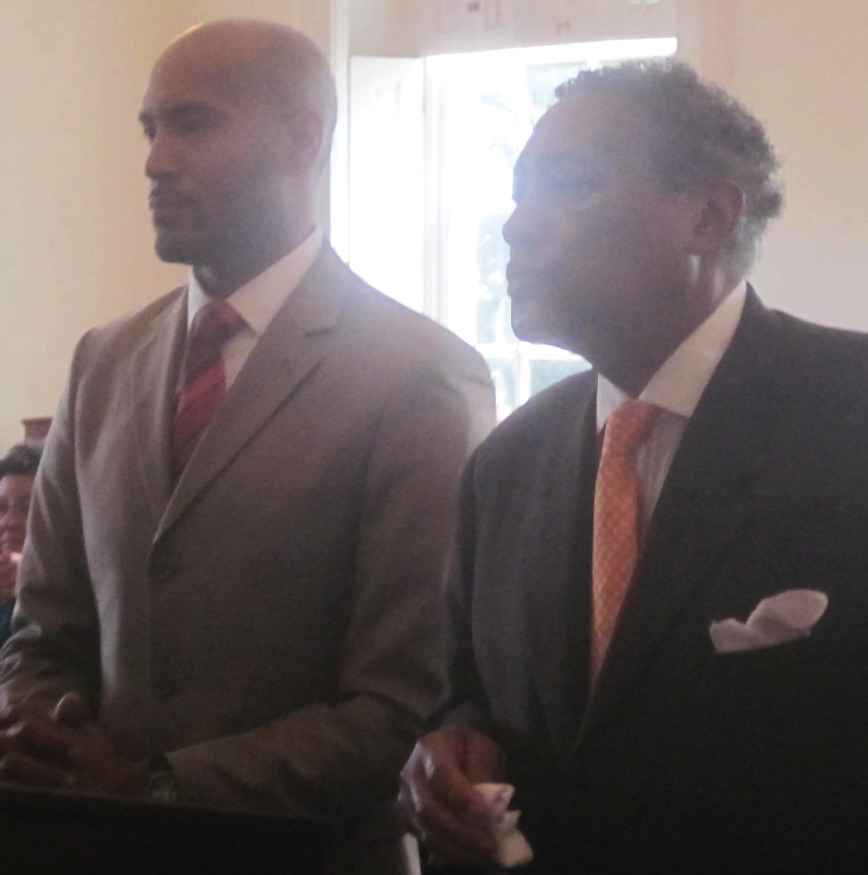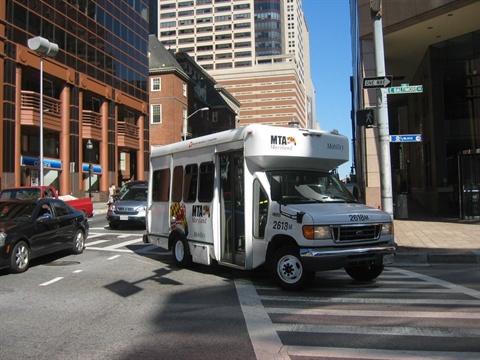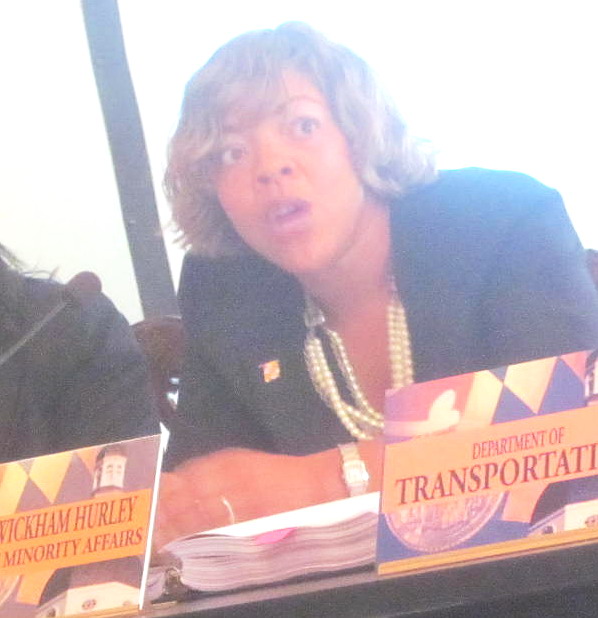Major paratransit contracts fail to meet minority business targets
By Sam Smith
[email protected]
The Maryland Transit Administration is trying to boost minority business involvement in two multi-million dollar paratransit contracts worth $42 million that have failed to achieve a required 25% Minority Business Enterprise goal. Veolia Transportation Services, Inc. only reached 13% participation, while MV Transportation, Inc. hit the 11% mark.
Terry Owens, MTA’s chief public information officer, said that the two companies have been responsive with the MTA’s efforts to help them improve their MBE performance.
“The companies are meeting with the MTA Office of Fair Practices and are developing a plan of corrective action,” Owens said.
Jolivet protests award
The deficiencies came to light last month when Arnold Jolivet, managing director of the Maryland Minority Contractors Association, brought the issue to the attention of the Board of Public Works in a letter dated Aug. 17 and in person at the Aug. 22 board meeting in Annapolis when the two contracts were due for reauthorization.

Transit Administrator Ralign Wells, left, and Arnold Jolivet of the Minority Contractors Association.
The two contracts, $25 million for Veolia and $17 million for MV Transportation, are for transporting people with handicaps or disabilities that keep them from using regular transit.
“I know that the Board is being placed between a rock and a hard place in terms of this is an on-going contract and the services are obviously very much needed,” Jolivet said. “In both of these cases, they have willfully ignored the MBE provisions. Send a message that is loud and clear that the minority business utilization goal is a very important part of the contract for the board, and the MTA and the whole state of Maryland will fully intend that the contractor will comply with it.”
Only a six-month extension granted
The MTA had requested the board approve one-year renewals for both contracts. The board only granted six-month extensions and the MTA will evaluate bids and provide appropriate awards by the end of the year.
Jolivet alluded to a similar situation with a procurement in Baltimore City where the city took steps to rectify the violation.
“They renewed the contract but they didn’t just let the contractor to go forward while the contractor was still in the default,” Jolivet said. “They made the contractor enter into a completely new agreement where the contractor was required to meet certain goals.”
Creating a more realistic goal
MTA Administrator Ralign Wells said the MTA has taken steps to ensure MBE compliance and has lowered the utilization goal for the newest paratransit procurement contracts to 17%.
“We want to make sure that we have the right goals set,” Wells said. “It’s more realistic to the environment of this type of procurement.”
Although the MTA has lowered the MBE goal for paratransit contractors, the administration’s goal is for all contractors to meet the state’s utilization goal, Owens said.
“There are some industries where it is more difficult, but our job is to hold contractors accountable and provide assistance where possible to help them succeed,” Owens said.
The Department of Transportation MBE Manual includes a contract compliance monitoring procedure when contractors can’t achieve the specified MBE participation. On a quarterly basis, the contractor is required to submit a MBE participation report. The report includes a list of MBEs working with the contractor, the percentage of the goal the MBE is responsible for achieving, and how much money is involved in the participation and a complete roster of the contractor.
Minority Business Enterprises include not just those owned by African Americans, but all minority groups includes women, Asians and Hispanics.
“We have asked and the MTA has committed to engaging in that formal process and coming up with a final determination,” Secretary of Minority Affairs Zenita Wickham Hurley said.
MV responds, Veolia doesn’t
Lauren Davis, MV Transportation communications manager, said the company is seeking help from the MTA to identify potential MBE partners.
“We have consistently searched for strong MBE partners to work with on the MTA contract,” Davis said. “MV is also a longstanding member of the Maryland Washington Minority Contractors Association. Our company began as a minority owned business and understands the importance and the value of working with MBEs.”
Veolia did not respond after several requests for comment by phone and email over several days.
Updated technology will help monitoring
MBE participation rates are being included in the MTA’s statistics program, so the MTA will have an easier time tracking contractors’ MBE compliance.
“We have the technology now that can alert us if their rates are not where they should be. The contract manager, as well, will be able to go there and look,” Wells said.
Hurley said the new tools will allow the MTA to better evaluate the responsibility of contractors.
“We recognize that we need additional enforcement tools. This past year, we created those tools. We need the BPW to issue regulations. We are working with the BPW on that. Moving forward, we will have additional tools,” Hurley said. “Right now, what we can do is take that into consideration for future procurements whether that vendor is responsible enough to accept an award.”

MarylandReporter.com is a daily news website produced by journalists committed to making state government as open, transparent, accountable and responsive as possible – in deed, not just in promise. We believe the people who pay for this government are entitled to have their money spent in an efficient and effective way, and that they are entitled to keep as much of their hard-earned dollars as they possibly can.



Why do race, ethnicity, and sex need to be considered at all
in deciding who gets awarded a contract?
It’s good to make sure contracting programs are open to all, that
bidding opportunities are widely publicized beforehand, and that no one gets
discriminated against because of skin color, national origin, or sex. But that means no preferences because of skin
color, etc. either–whether it’s labeled a “set-aside,” a
“quota,” or a “goal,” since they all end up amounting to
the same thing. Such discrimination is
unfair and divisive; it breeds corruption and otherwise costs the taxpayers and
businesses money to award a contract to someone other than the lowest bidder;
and it’s almost always illegal—indeed, unconstitutional—to boot (see 42 U.S.C.
section 1981 and this model brief: http://www.pacificlegal.org/page.aspx?pid=1342
). Those who insist on engaging in such
discrimination deserve to be sued, and they will lose.